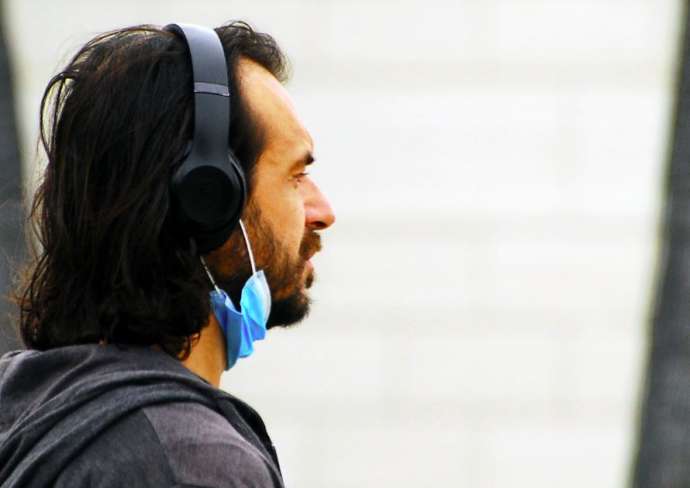STA, 26 July 2020 - Slovenian authorities issued nearly 14,000 quarantine orders during the first wave of coronavirus infections from 12 March to 31 May. The government helped repatriate some 2,300 citizens, while fines imposed for beach of lockdown and quarantine rules exceeded EUR 100,000, a government report shows.
The report, adopted by the government on Thursday for the period of the Sars-CoV-2 epidemic, which formally ended on 31 May, shows that health inspectors processed more than 1,500 reported cases of suspected breach of the government-imposed lockdown rules and the health minister-issued orders.
Inspectors conducted more than 4,800 on-site inspections, issuing more than a hundred orders prohibiting the sale of goods and services. They imposed more than 850 fines totalling over EUR 100,000.
Get the latest covid statistics for Slovenia here
The police referred a total of 13,992 quarantine order motions to the National Institute of Public Health (NIJZ), most of them for citizens of Bosnia and Herzegovina (6,439) and Slovenia (4,731). Under the NIJZ's guidance, the civil protection accommodated 50 persons in hotel quarantines.
The police conducted 189,475 checks under the ban on gatherings and movement, acting on 2,534 reported cases and establishing violations in 8,458 cases. They referred 6,957 cases to health inspectors, issued 5,500 warnings and orders, while finding 88 cases of breach of public order and peace law.
However, the police did not ascertain a single instance of criminal offence of transmission of an infectious disease.
During the epidemic, the Ministry of Foreign Affairs helped 800 Slovenian citizens stranded abroad to return home in organised groups, assisting an additional 1,500 to return on their own. The government organised 24 repatriation transports by air and bus.
Between 14 March and 25 May, the police supervised the transport of 66,729 lorries across Slovenia's territory, 24,567 of them headed for Croatia and on to other countries, and a further 42,162 en route toward Hungary and further on.
These were conducted in 35 convoys of 1,428 lorries crossing Slovenia from the border with Italy to the border with Hungary, and 115 convoys numbering a total of 4,891 trucks that crossed Slovenia from Italy to the Croatian border.
According to the national Covid-19 tracking site, Slovenia had recorded 1,473 coronavirus cases by the formal end of the epidemic on 31 May, along with 108 fatalities, with two more deaths added for April later on. By midnight on 25 July, the case count had risen to 2,082, including 116 fatalities.
One of the challenges in the epidemic was securing sufficient number of hospital beds. A field hospital and a mobile medical unit were set up at the Edvard Peperko army barracks on the outskirts of Ljubljana providing a total of 120 beds, including 40 beds for gravelly ill.
From the end of February to the end of May, more than 35 million items of various equipment were dispatched from the national logistics centre in Roje on Ljubljana's outskirts.
The relief effort between 13 march and 30 May involved 205,092 disaster protection, rescue and aid staff or an average of 2,596 a day.
Slovenia also helped other countries, providing an estimated EUR 110,000 worth of personal protective equipment to North Macedonia, EUR 133,000 in material aid to Bosnia and Herzegovina via the EU's civil protection mechanism, and helping Italy's Friuli Venezia Giulia region with 500 protective garments.
As education moved into the virtual realm, schools provided more than 4,000 computers to disadvantaged kids and the Ministry of Education in addition collected more than 1,300 computers and 950 modems with the help of donors.
The Slovenian Red Cross distributed more than 300 tonnes of food products from the Fund for European Aid to the Most Deprived, as well as aid it had raised itself and with the help of donors. A further 62,421 people benefited from material and psychological and social aid provided by Slovenian Caritas.






